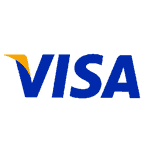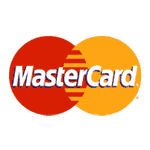
Reporting Non-Compliant Credit Card and Debit Card Surcharging
The rules for businesses charging a fee when a customer uses a credit card are well-defined by both card brand policies and numerous State mandates. Below we will cover how to report businesses that are charging fees for card payments at the point of sale. However, before filing a report, it's important to make sure that the business you want to file a report about is applying surcharges in a non-compliant way. We'll cover what to look for below:
Article Summary
Before we dive in, here's what we'll cover:
- Visa's rules for credit card surcharges.
- Mastercard's rules for credit card surcharges.
- American Express' rules for credit card surcharges.
- What the law says.
- How to report surcharges that violate rules and regulations.
Related Articles
- All State's Laws Regarding Credit Card Surcharges
- Charging Your Customers for Using Credit Cards will Kill Your Business, Here Why:
Can Businesses Legally Charge Credit Card Fees?
The short answer is that it is legal for a business to apply credit card surcharges when a customer makes a purchase with a credit card in most states. However, charging fees for using a credit card is illegal in a few states and heavily restricted in others. As of April 15th, 2023, Connecticut, Maine, Massachusetts, and Oklahoma have outright bans on credit card surcharges. Colorado restricts the maximum fee to 2% of the sale amount.
If you believe that a business is illegally adding card payment surcharges, we'll cover what you can do later in this article.
Can a Business Charge Fees for Paying with a Debit Card?
Unlike credit cards, it is against Visa's and Mastercard's surcharging policies if a business adds a fee when a customer pays with a debit card. Several states explicitly ban the practice as well. The reason for this restriction is due to the significantly lower processing fees of debit cards. In fact, due to the Durbin Amendment of the Dodd-Frank Wall Street Reform and Consumer Protection Act, the processing fee for most debit cards is capped at 0.05% and 5-cents a transaction. If a business adds a 4% processing fee to such a sale, the difference is either going to the business as profit or to the business' card processor in the form of processing fee arbitrage, both of which or are card brand policy violations and a Federal crime.
Visa's Policies for Credit Card Surcharging

In order for a business to comply with Visa's rules for charging customers a fee for credit card use, the business must do the following:
Correct Implementation
Businesses must notify Visa of their intent to surcharge credit card transactions at least 30 days before beginning the practice. Additionally, their equipment must be programmed to separate the surcharge as a clearly labeled line item on the customer's receipt. Surcharging must also be limited to only credit cards because it is a violation to add surcharges for debit cards and prepaid cards. We have seen several complaints from consumers of this last policy not being implemented correctly as it requires the processor to program the machines to recognize the different types of cards.
Alternatively, businesses can also post different prices on merchandise for cash versus credit cards. This is known as “dual pricing” in the credit card processing industry and is most often seen at the gas pump.
Signage and Notification
Businesses that apply fees for using credit cards must post proper signage to alert customers of surcharging before a sale occurs. These signs must be posted at all entries to the business as well as all points of sale and must be clearly visible. The language must clearly indicate that the fee is being charged by the business and not by Visa. If using dual-pricing, all merchandise must be clearly labeled with cash price and card price. For online businesses, consumers must be clearly alerted to the fee prior to checking out.
Visa Fee Calculation
This part of the policy seems to be the most violated. Visa's policies state that the fee must not exceed the actual cost to the business and that it cannot exceed 3% of the sale, or whatever state laws limit the maximum fee (Colorado limits the fee at 2%). The issue with this policy is that, in most cases, it does not appear that the actual fee to the business is communicated back to the business owner's equipment. This means the actual fee cannot be calculated. In lieu of complying with policy, many processors simply set the fee at to a fixed rate without disclosing to the business that such a practice violates Visa's policies. Additionally, many of these processors are setting the fixed fee higher than 3% which puts the business at risk of penalties and legal fines. In the the worst of cases, businesses could lose their ability to accept credit cards by overcharging a surcharge.
Sneaky Processor Surcharge Arbitrage
Another shady aspect of fixed rate surcharging is regarding who is keeping the difference in the fee when the actual cost is less than the fixed rate. For example, if a the actual cost to a business for accepting a particular credit card is 2% but the credit card machine is collecting a surcharge of 3%, where does that 1% difference go? It often goes to the processing company that manages the business' credit card processing. Due to this, processors are highly incentivized to mark the surcharge up as high as possible. Moreover, they rarely disclose this fact to the business or the customer.
See: Visa's Surcharging Policies
Mastercard's Policies for Credit Card Surcharging
Mastercard's policies resemble that of Visa's with a one main exception:

Mastercard Fee Calculation
Mastercard allows businesses to surcharge its credit cards as either an average cost to the business across all of Mastercard's different card products, or a maximum fixed rate of 4%. Businesses can also charge the exact cost of the particular card that is being transacted. Since such information is rarely communicated back to the business, most opt to charge the maximum of 4%. Again, this maximum fee must also be in compliance with state laws.
See: Mastercard's Surcharging Policies
American Express and Discover Surcharging Policies
Surprisingly, American Express provides almost no guidance or policies regarding surcharging. In fact, they don't even require it to be a line item on the customer's receipt. They also do not impose a fee cap but encourage businesses to comply with state laws. Discover appears to handle surcharging in much the same way.
How To Report Businesses and Processors That Are Charging Improper Credit Card Fees

Start by Contacting the Business Owner
Before resorting to filing complaints about a business, keep in mind that the owner may be unaware that they are violating the law or card brand policies. In many cases card processors are failing to inform and protect their clients from potential legal actions and fines by facilitating non-compliant surcharging practices.
Your reports to the agencies below can cause significant penalties to be levied upon the business or severe damage to its reputation. In some cases, Visa imposes a $5,000 fine for the first offense of improper surcharging. In today's difficult business climate, these fines could have serious implications for many business owners. We recommend to first contact the business owner to express your concerns regarding their surcharging practices. You may even want to refer them to our article, “Charging Your Customers to Use Credit Cards is a Bad Idea,” to help them understand the how they may be harming the future of their business. If all else fails, below is how you can report a business for charging to use credit cards incorrectly.
Consumer Protection & Review Websites
If contacting the business owners fails to achieve results, one of the quickest and most effective ways to get a business to change unsavory policies to take your grievance public. Start by calling out the business in the comment section at the end of this article. File complaints on their Google Maps listing and other websites like Yelp and Trip Advisor. Make sure the owners of these businesses are aware of how surcharging affects your experience at their business and your likelihood to return as a repeat customer.
How to Report Non-Compliant Card Surcharges to Visa
The easiest way to report a business for surcharging a Visa credit card improperly is to call the customer service line associated with the credit card used to make the purchase. Additionally, you can file a complaint directly with Visa by reporting a purchase issue here.
How to Report Non-Compliant Card Surcharges Mastercard
Mastercard recommends that consumers call the customer support line of your credit card to report improper surcharges. Additionally, you can call Mastercard's direct customer support line at (800)-627-8372.
How to Report Illegal Credit and Debit Card Surcharges
If you believe a business is knowingly applying illegal card surcharges at the point of sale, or that a business' merchant account provider is facilitating illegal card surcharging, there are a few routes that you can take to report them to government agencies.
Start at the Local Level
We suggest starting with your local agencies and representatives, as many cities have specific policies regarding credit card surcharging rules.
Call 311
Calling your local 311 line may offer local options for reporting non-compliant surcharging and could result in the quickest action.
Contact Your State's Attorney General
Contacting your State Attorney General may not result in immediate action; however, the more reports that are filed about a business or processor, the more likely the Attorney General will take action. This is especially true with debit card surcharging since it is a crime to add fees to debit card sales. Simply search for you State's Attorney General on Google and then follow instructions on reporting illegal or fraudulent business practices. Keep in mind that supplying evidence is crucial, so keep your receipts showing the illegal surcharges and any photos that indicate non-compliance with signage and pricing.
Write your City, County, and State Representatives
Your representatives in government are not likely to step into your particular grievance, but informing them of illegal activity regarding card surcharging practices can help them refine the laws and regulations in future legislation. Simply look them up in Google, it's that easy.
File a Complaint with the CFPB
The Consumer Financial Protection Bureau is specifically in place to help consumers report illegal and unfair business practices of financial institutions. In our case, the processors and banks that are allowing businesses to impose illegal card surcharges. If you choose this route, you will want to find out which processor the business is using as its merchant account provider and POS system.
File a Report with the FTC
As a the top agency on the block, the Federal Trade Commission can have a major influence on individual bad-actors as well as the entire credit card processing industry. We highly recommend reporting any business or processing company to the FTC that is allowing businesses to surcharge debit card fees, as it is illegal and likely intentional.
Bottom Line
Are you getting charged to use your credit card? Tell us how you feel about it below in the comment section. Does it seem fair to consumers?
Credit card fees are very annoying and no one likes to be surprised by them. Businesses are required to comply with state laws and card brand policies to do it correctly. We always recommend resolving your grievance directly with a business before resorting to formal complaints. In fact, you can help businesses save on fees by referring them to our list the best low-cost credit card processing companies. By helping them save on processing fees, you may be able to encourage them to stop adding surcharges.
Frequently Asked Questions
Reporting a Business for Charging a Credit Card Fee
The legality of charging credit card fees depends on the jurisdiction. In some places, businesses can pass on processing fees to customers, while in others, it may be prohibited. For example, in the United States, merchants can generally charge credit card fees, subject to state laws and card network rules. However, specific restrictions and requirements may vary. It's crucial to check the regulations in the relevant area to determine the legality of credit card fees for businesses.
In the United States, businesses can typically charge credit card fees for transactions made with credit cards but not for transactions made with debit cards. The Dodd-Frank Wall Street Reform and Consumer Protection Act prohibits surcharging on debit card transactions. However, some countries and regions may have different regulations, so it's essential to check the specific laws in the relevant jurisdiction.
A credit card surcharge is an additional fee imposed on a customer for using a credit card as a payment method. It is a percentage or fixed amount added to the purchase total. A convenience fee, on the other hand, is an extra charge levied for the convenience of using a particular payment method, such as paying online or over the phone. Convenience fees must be the same for all payment methods and should not be directly related to credit card usage. Both practices may be subject to legal restrictions in some jurisdictions.
To record credit card fees charged to customers, create a separate income account called “Credit Card Fees” or “Merchant Fees” in your accounting software. When you receive payments from customers via credit cards, record the full amount as income. Then, when you receive the funds from the credit card processor, record the corresponding credit card fee as an expense under the “Credit Card Fees” account. This way, you accurately track both your revenue and the associated expenses related to credit card transactions. Consult your accountant or financial professional for specific guidance based on your business needs.
Please see: All States Laws for Credit Card Surcharging for the most updated information.

Quentin Heilman
Hello Phillip,
I’m the general manager for a fast casual restaurant in KC/KS. I completely agree that charging credit card fees should be eaten by the business. Ownership on the other hand has decided to go against my advice and charge it anyways. Including on Debit card. I have explained to them multiple times that it isn’t legal to be doing that. They just assure me that it is completely legal in Kansas since it is a cash discount. It isn’t a discount. It adds a 3% fee at the end of the reciept that says non-cash charge. I love this place, but I think in recent years greed has taken its toll. I almost want to report them but don’t want to lose my job doing so.
Any advice?
Phillip CPO
Hi Quentin, my advice would be to send this article to them as well as to refer them to my other article about surcharging, “Charging Your Customers for Using Credit Cards will Kill Your Business.“
Joseph
We attempted to purchase a season pass to Wildlife World Zoo in Arizona on 11/19/23. As we were about to pay the $400 fee with our Visa card, we were informed that a 4% fee ($16) was being added. The fee was not posted anywhere. We said that instead, we will use our debit card. We were informed that the same fee applied to the debit card. The fee of 4%, and attempting to charge our debit card both seem to be illegal. They lost the sale, but should be found in violation. Any advice? Thanks.
Phillip CPO
Hi Joseph, yes, charging a customer a fee for using a debit card is against the law and card brand policy. However, it may depend on what they are calling the fee. I would recommend getting a screen capture showing what the page says after you enter a debit card and prepare to pay. You can then take that information contact your bank and Visa to report them. We cover how to do that in the article. Good luck!
Marie Blackwell
I will not do business with any retailer that charges a fee, I will walk out. AT&T has now started penalizing customers paying with cc by taking the $5 discount for autopay/paperless billing, but you are still expected to continue on the program, so you aren’t charged more. You have to change your auto pay to your bank account. Something I hate to do, I don’t like bullies and giving anyone my banking information. I tried to switch carriers but they are lower than other carriers right now so I can’t.
I have earned the right to use my credit card and earn my rewards, all the retailers are doing is taking the rewards back from us. I think they are shooting themselves in the foot.
It used to the be the price of running a business. Why can’t they just raise their prices to absorb the cost instead of charging the fees.
Sickofsurcharges
Years ago this was baked into prices and consumers were told the higher prices were due to credit card fees. We have always paid for it. Now greed has just set in and merchants/restaurants feel they should only have profits and zero expense. Until we band together and stand up against these practices they will continue. I have been searching for some group or organization that would want to stand against this throughout our nation and get it to stop.
These fees are 100% tax deductible, therefore reducing the businesses taxable income by however much the fees total for the year just like every other business expense. My question is; who gets the tax break for the fees we now pay? I don’t for sure!!!
Cathryn
Master Movers in Nasville TN charges a 5% surcharge to any & all card transactions, no matter the type of card you pay with, plus an additional 3% if they have to run your card manually for a total of 8%. They have the movers calculate the amount & add it to your total & then run that amount on your card.
Kathleen
Hi. I was recently charged a 4% surcharge for using my Visa debit card. It was hidden on my initial receipt but listed on my final receipt. I feel this is u ethical since I am actually using cash but with my debit card. Is there anything I can do about this?
Phillip CPO
Hi Kathleen, you can call the bank that issued your debit card and report that a business added a surcharge for a debit card payment. It is also illegal to add surcharges to debit card purchases and I have added ways to report such activity in the article above.
Angryaboutdebitsurcharges
I understand that merchants do not want to pay for customers to get rewards on their credit card. I don’t think they should have to pay for this. I don’t have an issue with fees charged for the use of a credit card until there is better regulation on interchange and switch fees and all of the other fees associated with credit card processing. However, I do not understand why a merchant would choose to charge a fee for using a debit card that doesn’t have rewards and very little fees which have been capped by law. I am so fed up with these credit card processors not informing their merchants that it is not ok to charge 4% for using a debit card. I have been researching this for three years now and have kept a very close watch on visa regulations as well as anything I could find to prove the Durbin Amendment makes this practice illegal; which I haven’t. I work in the processing industry and have seen businesses like “disperse my fees”(not to expose the real name) rob consumers by blatantly lying to merchants, telling them to run everything as credit and providing machines that will not recognize a debit card.
My husband reports every business that adds these fees to our personal debit card and has been recently exposed to the public via Facebook for doing so as if he were a criminal. The processor went to a local business and watched security footage until my husband was seen at the register paying. They then took a picture of that security footage and distributed it like a “wanted poster” to their merchants. The processor also got my husband’s cell number from this merchant. He has been called by this processor and threaten with a $800,000 lawsuit, possible cease and desist order and that there would be a “lien”placed on everything thing we owned if he didn’t stop reporting the businesses. I now live in fear of my job and life because of this aggressive processor. Furthermore, the processor goes back and either changes the wording of the fee imposed to something like “packaging fee” or completely removing the separate line item. What shows as the total on the cash register is not what is charged to your card when they use the machine. Now when you ask for the itemized receipt from the register, the merchant refuses to give it to you. You are stuck with only a receipt from the machine that shows the total amount charged to your card. How is this practice getting passed by with law makers and card brands??? I have emailed Mr urban twice asking him about his law and begging him to revise it to state specifically what a debit card is and specifically if fees can be charged for using it. No response as of yet. I have reported these practices to every federal consumer agency possible with no response much less a resolution. Our AG doesn’t want to concern himself with this fickle matter as I have also tried this route.
As I said, I work in this industry and know what it costs businesses to clear debit card transactions and it is nowhere near 4%. I do not believe in gouging customers or merchants by doing this. I do my best to explain every fee in detail to our merchants. We have always used real pass thru pricing with our markup only being in basis points that meet your suggested amount and sometimes half of your suggested amount, Very small transaction fees, no basis points on debit, only small transaction fee. We ask for a cancellation fee that only covers what we have to pay for the six months that it takes for the account to fall off our portfolio if they cancel in the 36 month period. Mostly all we do is pass the expense of anything we have to pay and a small markup as described above.
I offer excellent customer service. I even get on the phone with my merchant and stay on while calling the help desk if I can’t assist them first, which I can 80% of the time.
I am not trying to promote the business I work for and have never promoted to anyone that was reported for surcharging debit cards. However, this small business I work for is slowly drowning due to businesses that lease a machine that charges 4% on every card that is run, collect all the monies, pay wholesale for processing, collect a monthly lease amount form the merchant, pay the merchant for products sold and run away with thousands of dollars each month at the expense of the consumer. It angers me that so many processors/service providers are so greedy and have completely ruined the industry so that service providers are considered worse than car salespeople because they get the account with deceptive practices and then loose the merchant’s number leaving the merchant to deal with a help desk only.
I do apologize for this long rant but hope you can understand my frustration and help continue the fight for fair pricing and sales practices as well as good customer service.
Karen
I had a food trailer charge me 5% for using my card today! Ridiculous! I will be filing a report thanks to this article. Thank you!!!